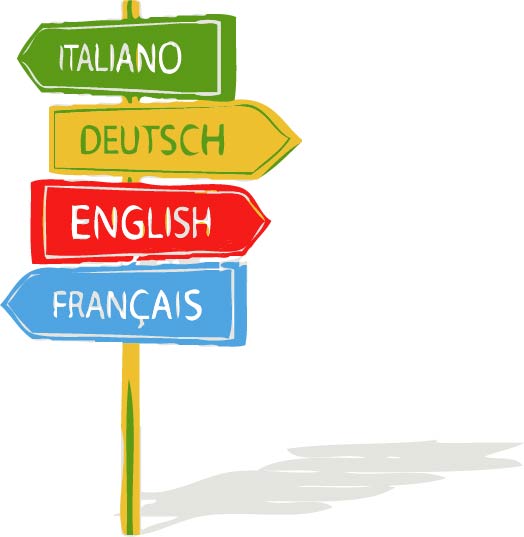Confessions of a Language Learner/Lover
 I was born and raised in a French monolingual family. As with many French students, learning foreign languages was part of my academic career. I studied German for 8 years (from the 5th grade though senior year), I started studying and speaking English in the 8th grade, and I also took three years of Italian in high school.
I was born and raised in a French monolingual family. As with many French students, learning foreign languages was part of my academic career. I studied German for 8 years (from the 5th grade though senior year), I started studying and speaking English in the 8th grade, and I also took three years of Italian in high school.
The language-learning journey is a mystery to me because I can’t quite pinpoint the specific time I became fluent in all three languages, or explain how I became fluent in foreign languages. However, I have a different love/hate relationship with all three of these languages. I started learning German out of necessity: it was the only language offered to me in the 5th grade at the middle school close to my house, where German was required as a first foreign language. My middle school German teacher at the time used a method known as the “grammar-translation” method. The advantage of this method was that I learned a lot of vocabulary and grammar fairly quickly by translating texts; however, it also meant that we didn’t practice conversation often. This explains why, after six years without speaking German on a daily basis, I have a hard time remembering words and sentence structure. I was very passionate about German at first; however, my interest has dwindled since I don’t have German friends anymore and quite frankly, my life doesn’t depend on speaking it!
I haven’t spoken Italian on a daily basis for about three years, and I feared I would forget it too. Surprisingly, and interestingly, I can still speak Italian and find myself thinking in Italian sometimes. I suppose that I just really love the way the language sounds. It’s also very close to French, which makes it easier to remember.
English, however, is the language that I have really fallen in love with. I speak it every day, think and even dream in English! I actually love speaking English more than my own native language. It has, however, become a little bit of a problem over the years. I’ve lived in the U.S for three years, and since everything I do has to be processed in English, sometimes now when I talk to my family I have trouble speaking French. It sounds ridiculous, but it’s true.
But more seriously, why does language matter to me?
Language matters to me on a personal level, because I love to travel and meet people and experience other cultures. Speaking different languages has allowed me to do that and I’m very grateful for every new friend I make, and every new country I visit.
I also think about the future and having a family someday. When I think about having children, I know that I don’t want them to be monolingual. I want them to explore and experience the richness of the world. Someday, we might even learn a foreign language together!
Language also matters to me on a professional level. I’ve always known that I wanted to teach a language. I think that transmitting my own language to others is a beautiful thing. Finding creative ways to teach is exciting and seeing in your students’ eyes that they understand is purely magical.
I’m studying linguistics and second language acquisition, and over the years, I’ve come to think and understand language in many different ways. I’m interested in studying how gender and personality influence our language learning process. When I say “personality,” I also want to emphasize the fact that speaking multiple languages can engender different personalities in you: I’m definitely more outgoing and creative when I’m speaking English or Italian than when I speak French. That is another of my mysteries!
Finally, I’m thinking about the possibilities that “language” encompasses. Language has become more than just words for me. As I’m teaching introductory French, I think about all the tools I can use to make my students understand the language without translating. I often find myself drawing or using hand gestures and facial expressions. Being able to communicate through all of those tools is an amazing experience, and I can’t see myself doing anything else.
About the Author:
Emeline Diolot is a first year Ph.D student in the French Department. Her main research interests are Linguistics and Second Language Acquisition, particularly regarding the ways gender and personality influence the language-learning process.
